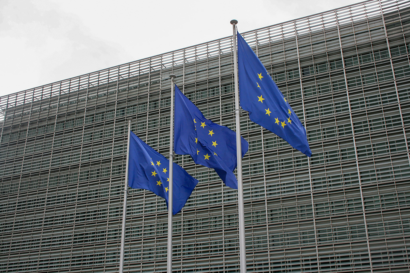PRESS RELEASES | 11/06/2025
Spending Review sets a positive path towards low-carbon growth – but further progress required on nature

Reflecting on what the Spending Review means for progress towards low-carbon growth in the UK, Rachel Solomon Williams, Executive Director at the Aldersgate Group, said: “The decisions made in this Spending Review demonstrate a welcome recognition from the Chancellor that delivering net zero will support the economic growth required to boost living standards and fund public services. The private sector is on board with this, and continued policy support will enable businesses to play their part effectively. However, the importance of nature restoration, the circular economy, and land use to our economy are not sufficiently reflected in Defra’s settlement.
Despite a very challenging geopolitical outlook, delivering targeted capital spending, particularly through commitments to effectively fund the Warm Homes Plan and GB Energy, will be warmly welcomed by businesses. Improving the energy efficiency of homes across the country will deliver tangible benefits for householders, while lowering our reliance on costly and volatile fossil fuels. These decisions will help to ensure the UK remains an attractive destination for low-carbon investment, which is critical to deliver emissions reductions, boost energy security, and spark growth. We also welcome the broad support for local and regional government, given the important role that those tiers will play in the transition.”
Policy specific analysis
On planning and nature restoration, Signe Norberg, Head of External Affairs at the Aldersgate Group, said: “It’s disappointing to see a lack of focus on nature in this Spending Review, which is a missed opportunity for the UK. The government’s growth mission and nature protection are not at odds: the natural world is a fundamental pillar of our growth and future prosperity. To effectively deliver both, we need financial commitments towards nature restoration, a clear policy programme that sets the direction of travel for environmental improvement, and a planning system that is well designed and properly funded. We urge the government to ensure that local authorities, and particularly planning departments, are provided with the financial support that they require to meet housing and infrastructure targets, while protecting and improving the natural world that is so critical to future prosperity.”
Considering the implications for the UK’s industrial policy and energy costs, Marie-Laure Hicks, Head of Policy at the Aldersgate Group, said: “We still need to see progress in directly addressing the UK’s notably high electricity prices, which are hindering competitiveness on the world stage. The government must urgently put in place measures, supported by the financial commitments towards renewable energy, upskilling, and carbon capture made in this review, to address this issue and place businesses in the best possible position to decarbonise and expand. We need a comprehensive plan that identifies where competitive advantage can be gained in key low-carbon industries, while addressing ongoing challenges around energy costs and skills gaps. This is a significant opportunity for the UK economy that we must grasp.”


